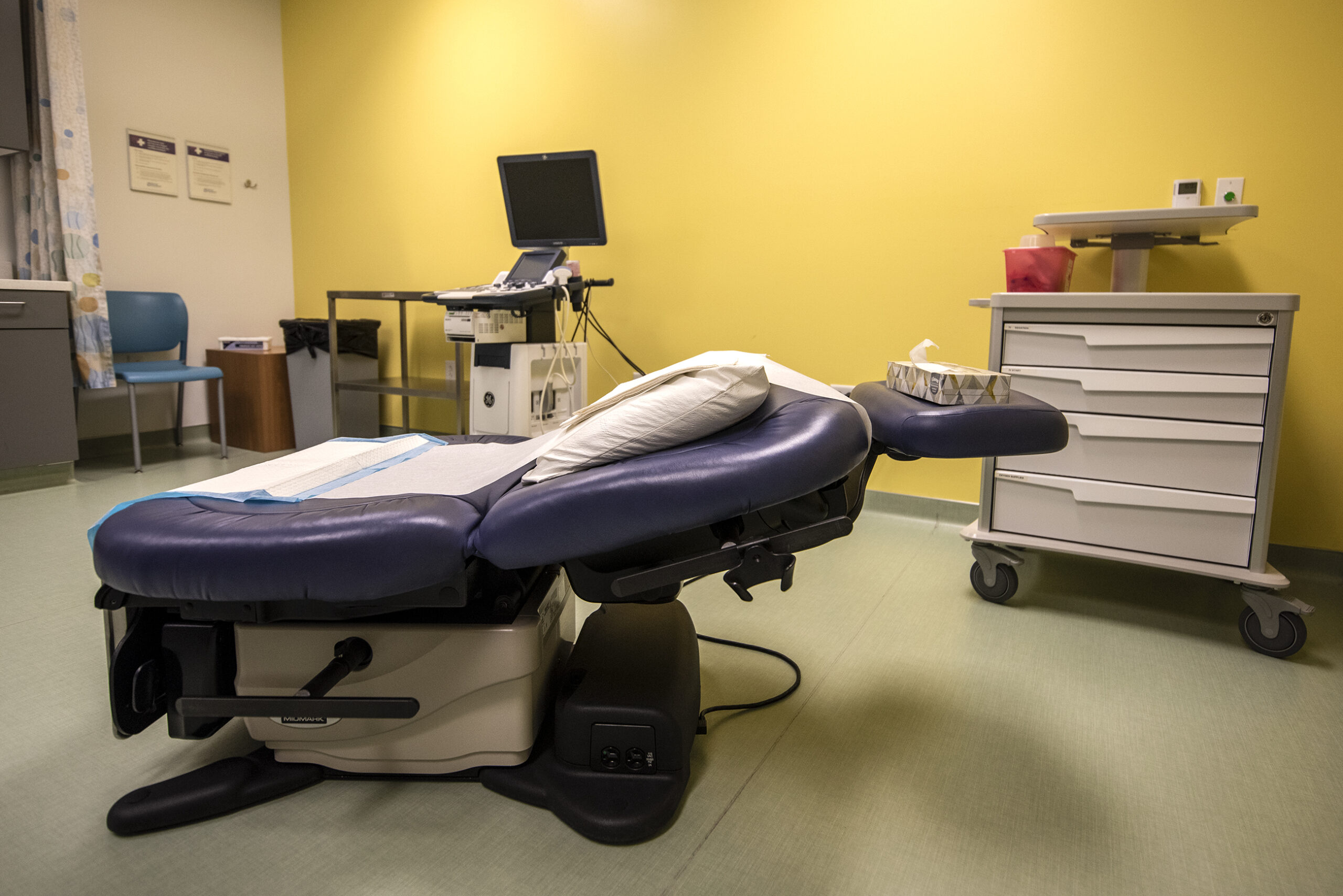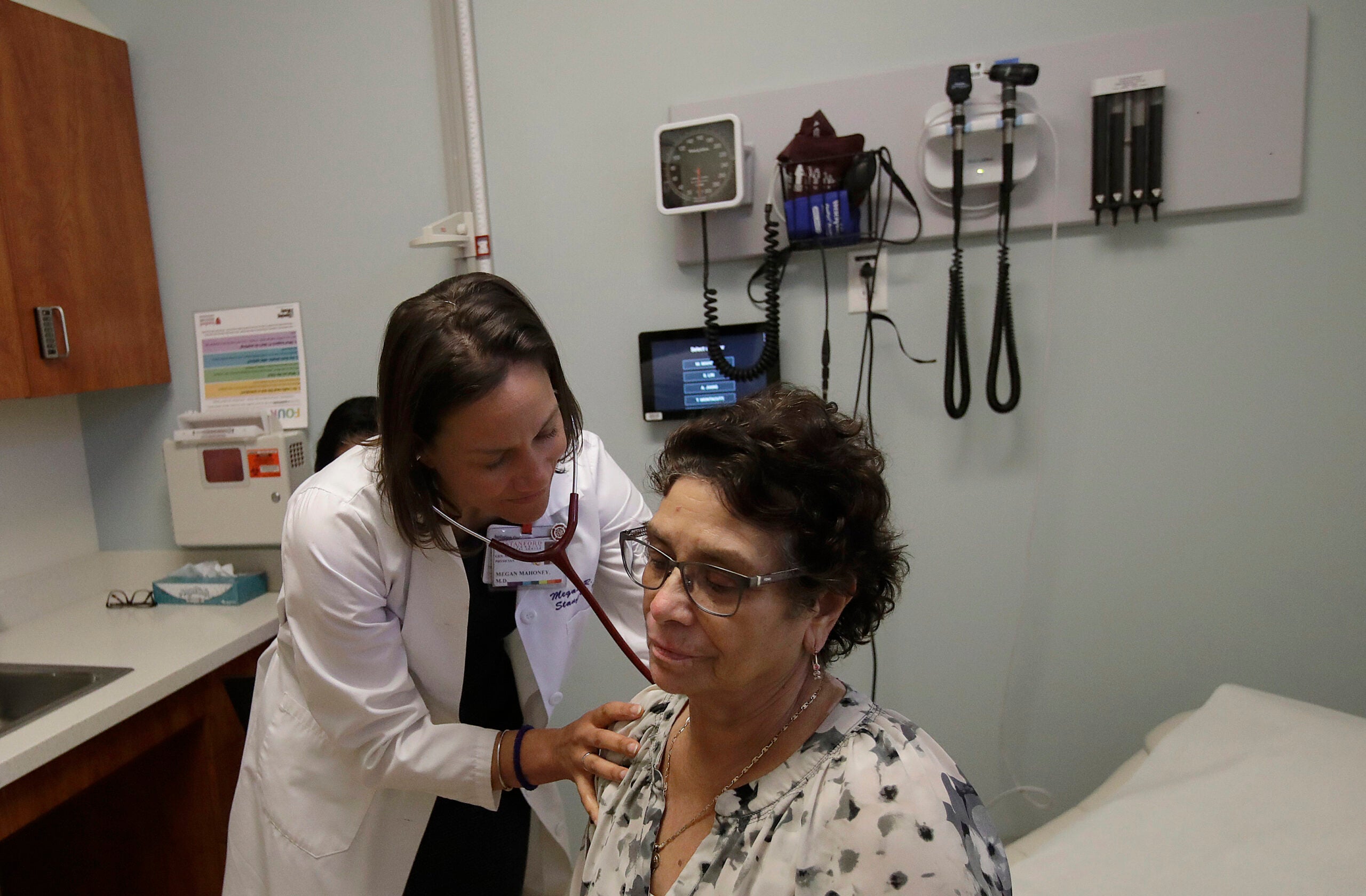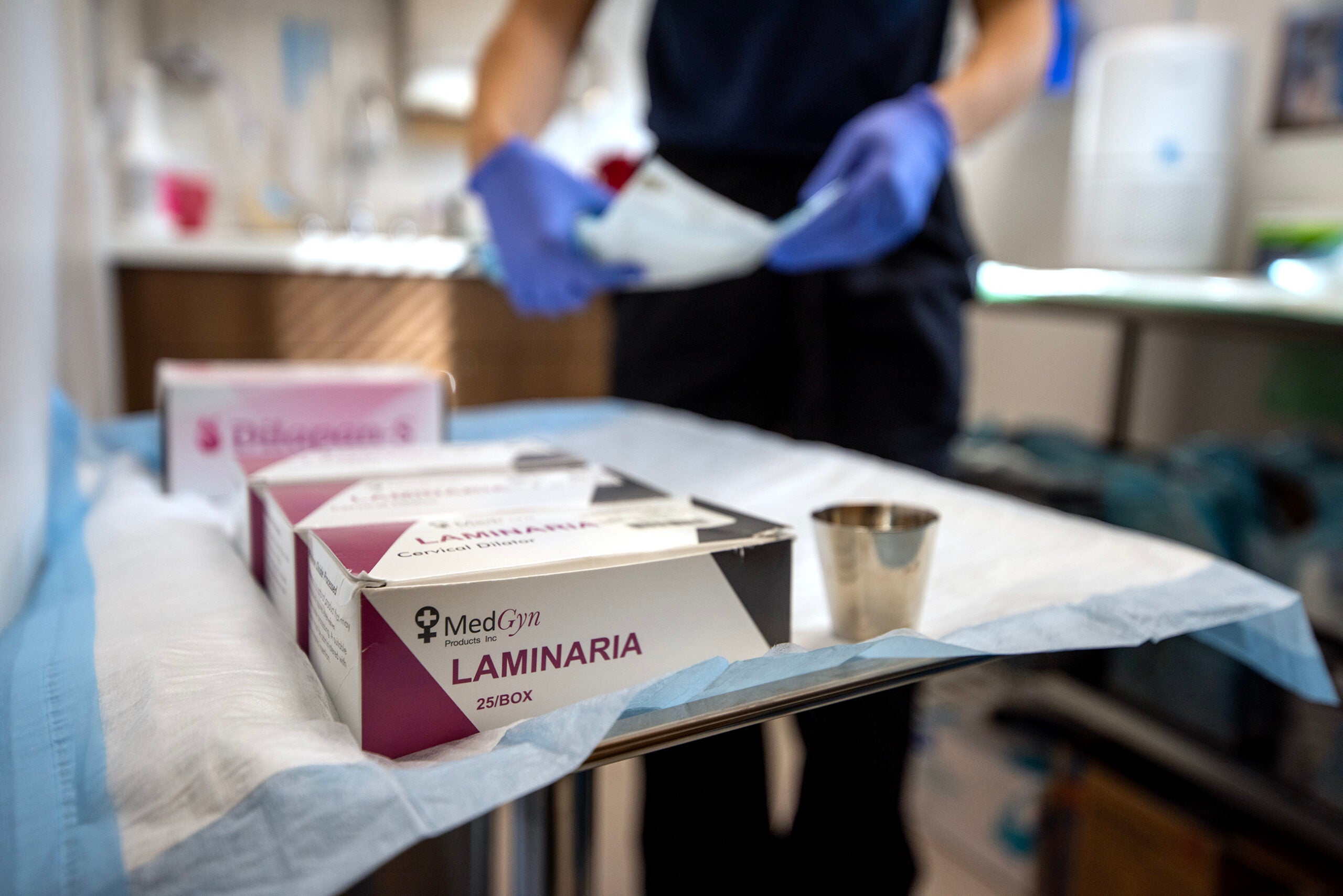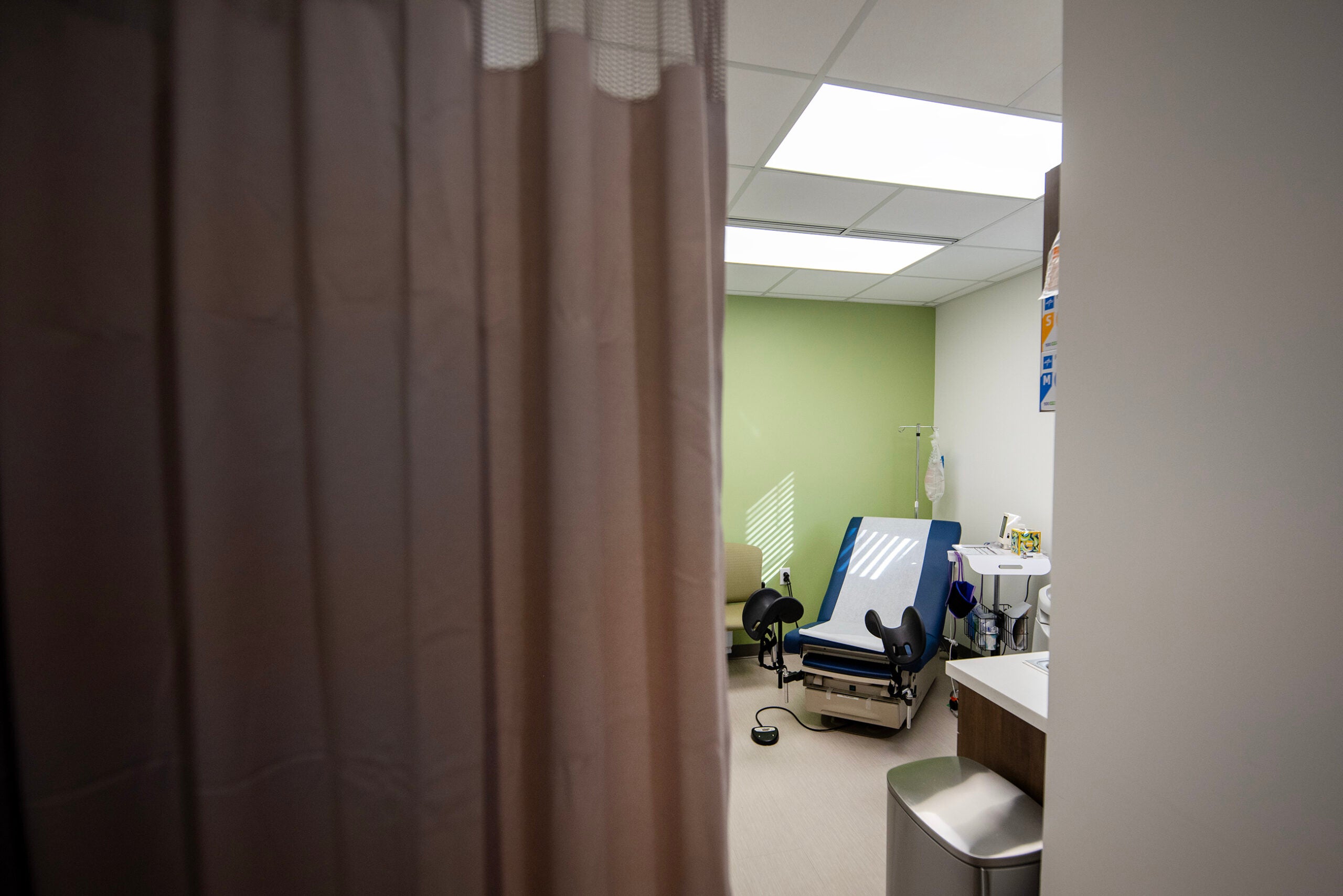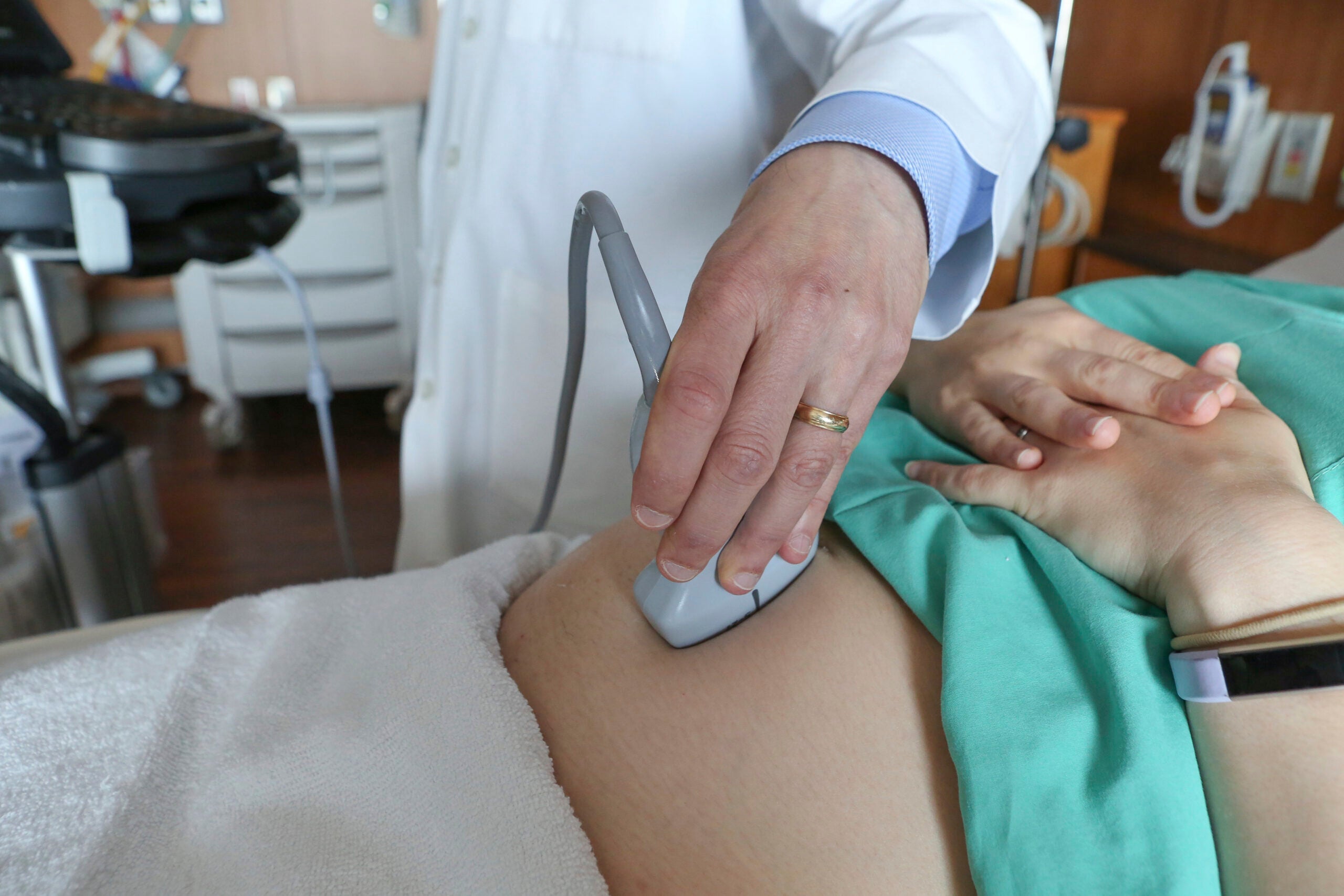Wisconsin doctors are scrambling to figure out how to approach reproductive care after the U.S. Supreme Court overturned Roe vs. Wade.
Without the landmark decision that affirmed the constitutional right to an abortion, Wisconsin providers are likely bound by a 19th century ban on nearly all abortions that’s still on the books. But many aren’t sure exactly what that means for how they can advise and treat patients around pregnancy in 2022.
Dr. Madelaine Tully is a family provider in Milwaukee who spoke about the decision Friday at a press conference organized by the liberal group Committee to Protect Health Care. She says understanding Wisconsin’s legal landscape will take time people don’t have.
News with a little more humanity
WPR’s “Wisconsin Today” newsletter keeps you connected to the state you love without feeling overwhelmed. No paywall. No agenda. No corporate filter.
“I can’t stress enough, pregnancy is something that moves along,” Tully said. “If you’re six weeks pregnant today, you’re going to be eight weeks pregnant in two weeks, you’re going to be 12 weeks pregnant in a few more weeks. That is a much faster process than changing laws.”
Tully called the move by the Supreme Court reckless and cruel.
“This is happening right now. This is affecting women today,” she said. “This is affecting women in such a way that we are most likely going to lose some patients.”
Before Friday’s ruling, abortion clinics across the state had suspended appointments, but nearly 70 abortion procedures with Planned Parenthood of Wisconsin scheduled for Friday and Saturday had to be canceled, according to the Associated Press.
Wisconsin’s abortion ban makes the procedure illegal unless deemed medically necessary to save a patient’s life.
Abby Cutler, an OB-GYN on faculty at UW Health said that definition is impossible to pin down.
“Knowing when that line is, when does a patient, when does a mother or a future mother become sick enough or is in enough danger to require life-saving treatment immediately,” Cutler told Wisconsin Public Radio. “I think that’s a really difficult line. There is no line, really.”
Cutler said despite not knowing exactly what the Court’s decision means for Wisconsin, she continues to provide compassionate, evidence-based care.
“I have been focused on helping patients who were planning on obtaining abortion care trying to figure out different ways to obtain that care now,” Cutler said. “That’s been my focus today.”
In a separate statement, UW Health said making abortion illegal would be overwhelmingly felt by the state’s most vulnerable, including underserved rural areas and marginalized populations.
The situation pushed Wisconsin Medical Society President Dr. Wendy Molaska to implore lawmakers to pass legislation protecting physicians’ rights to care for their patients.
“Today’s decision raises concerns that could result in significant interference with the physician-patient relationship — the sanctity of which is the bedrock of our healthcare system,” Molaska said in a statement.
“The health and safety of our patients is our top priority,” she continued. “Wisconsin law should reflect that priority and ensure physicians can have full and frank discussions with patients about their health care without fear of imprisonment.”
Doctors say it will take some time to determine exactly how the 19th century ban will affect their daily medical practice. Cutler said medical societies, individual institutions like the Medical College and UW Health, attorneys and legal specialists, and state agencies like the Department of Health Services have all been playing a role.
“There’s been lots of conversations at the institution and also organizations that I participate in about how best to keep our focus on delivering compassionate, evidence-based health care to patients who need it, even under really un-ideal circumstances,” she said. “There’s a lot still unknown, but that uncertainty is now not so far in the future but right in front of us.”
Wisconsin Public Radio, © Copyright 2026, Board of Regents of the University of Wisconsin System and Wisconsin Educational Communications Board.

